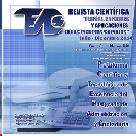Back to the roots of capitalism. In light of Adam Smith, Cecil Pigou, Max Weber
Keywords:
native postulates of capitalism, capitalist societiesAbstract
This research will involve the completion of an approach to the foundations of capitalism, which is done through the study of capitalism contributions given by their representatives such as Adam Smith, Cecil Pigou, and Max Weber. From a philosophical, political, social perspective, with the aim of highlighting the strengths that have these postulates, and the effect thereof on the search for alternatives that allow the progress of peoples considering man as a central axis, linked a whole system of values. Depending on the achievement of objectives in three phases of research, a first through library research originating authors of capitalism, the principles of each of the authors considered to be highlighted , in order to make a platform appear allowing further analysis and comparison of the primary ideas and what today is evident in capitalism ; in the second phase , there will be a full characterization of the companies that claim to be capitalist , for their economic, in a comprehensive analysis under various dimensions , that will draw what capitalism was , is and will be in today’s societies and the last phase, which includes product research , is displayed under the lens of the fathers of capitalism , what would today ‘s society under the philosophical , social, political and economic dimensions , achieving a kind of ideal outline under the original assumptions of capitalism.
Downloads
References
Ander-Egg, Ezequiel (1990). Técnicas de Investigación Social, Editora graficas Días, S.L, 1era edición, Alicante España
De Sainte, Lucien (1957). La integración europea. Editorial hispanoeuropea. Barcelona. España. Ekelund, Robert y Hebert, Robert (1998). Historia De La Teoría Económica y De Su Método, Mc Graw Hill, Madrid.
FONDO MONETARIO INTERNACIONAL. 2005 La solidez del sistema financiero. Fuente:http://www.imf.org/external/np/exr/facts/spa/bankings.htm. (Consultado el 05-02-14)
García Cotarelo, Ramon. (1981) Introducción a la teoría del Estado. Barcelona, Teide.
Krguman, Paul. y Obstfeld, Maurice (2001). Economía Internacional. 5ª edición. Editorial: Addison Wesley.
López, Juana (2006), Contraste del Capitalismo e Islamismo bajo un enfoque Ontológico. Editorial Académica Española. Saarbrücken Alemania.
Montenegro, Augusto (1998). Historia del antiguo continente. Editorial Norma. Bogotá, Colombia
Pigou, Arthur C. (1920) Economía del bienestar, Aguilar, Madrid, 1946, caps. II y IX de la 2ª parte.
Ureta, Iván, Calvo, Cesar (2006), La Evolución Del Pensamiento Económico Al Economicismo Pensante. Http://Www.Eumed.Net. 2006
Velázquez, Gaztelu j. p (2009, Febrero 09,). Necesitamos una alianza entre Estado y Mercado [Entrevista a Amartya Sen, Premio Nobel de Economía 1998, economista y filósofo] El País de España
Sánchez Rubio, David (2007). Repensar derechos humanos. De la anestesia a la sinestesia. Sevilla: Editorial MAD. ISBN 84-665-7152-3
Spencer, Milton (1993). Economía Contemporánea. Editorial Reverte, SA 1993 Barcelona España
Sierra bravo, Restituto. (1988) Técnicas de investigación social. Teoría y ejercicios, Paraninfo, Madrid.
Smith, Adam (1759) Teoría de los Sentimientos Morales. Textos digitales. En: http://www.textosdigitales.com.ar/CP/CICLO_BASICO/2.007. (Consultado: Enero 2013)
Smith, Adam (1779) Investigación sobre la naturaleza y causas de La Riqueza de las Naciones. El Ortiba http://elortiba. galeon. com ADAM SMITH La riqueza de las aciones Antología esencial Título original: “The Wealth of Nations”.
Vasak, Karel, (1984), Las dimensiones internacionales de los derechos humanos, Barcelona, Serbal-Unesco
Weber, Maximilian. (1905), La ética protestante y el espíritu del capitalismo. Península, Barcelona, España.
Weber, Maximilian. (1987) Ensayos de sociología de la religión. Madrid. Taurus.
Published
How to Cite
Issue
Section
Derechos del/de autor/es a partir del año de publicación
Esta obra está bajo la licencia:
Creative Commons Reconocimiento-NoComercial-CompartirIgual 4.0 Internacional (CC BY-NC-SA 4.0)
Las opiniones expresadas por los autores no necesariamente reflejan la postura del editor de la publicación ni de la UCLA. Se autoriza la reproducción total o parcial de los textos aquí publicados, siempre y cuando se cite la fuente completa y la dirección electrónica de esta revista. Los autores(as) tienen el derecho de utilizar sus artículos para cualquier propósito siempre y cuando se realice sin fines de lucro. Los autores(as) pueden publicar en internet o cualquier otro medio la versión final aprobada de su trabajo, luego que esta ha sido publicada en esta revista.



